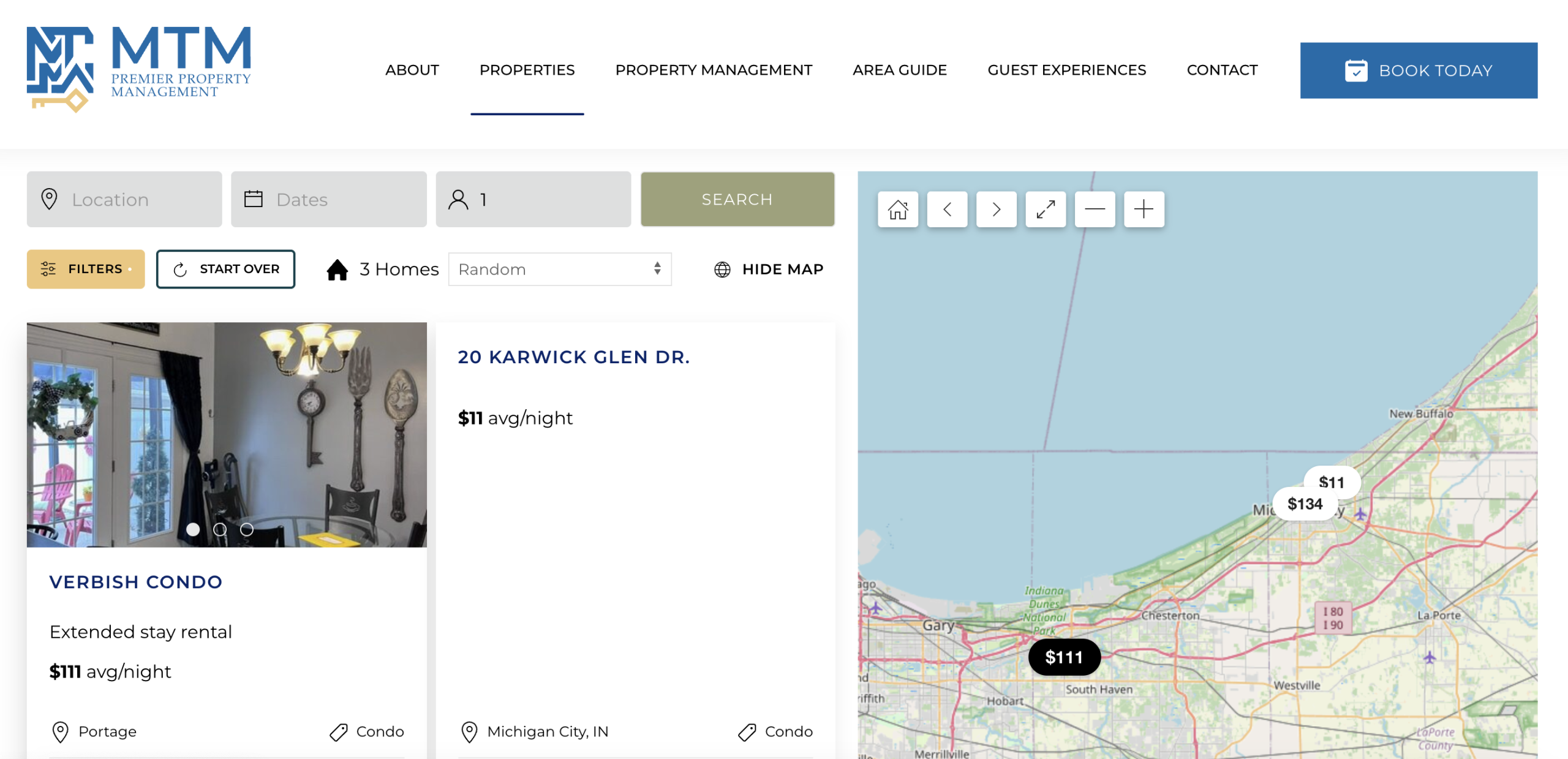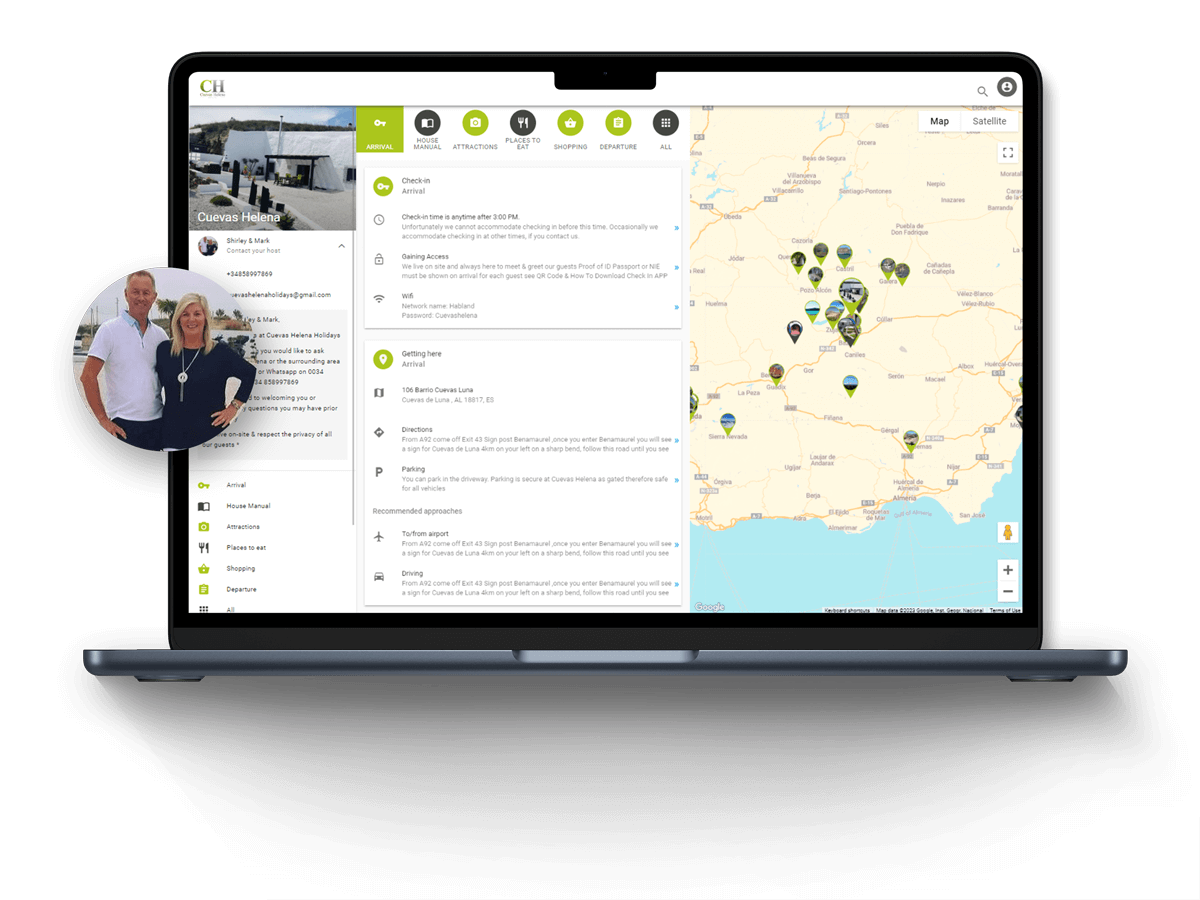Are there lots of empty dates in your calendar? You might be considering a shift from classic vacation rental management to corporate housing to plug the gaps and boost your income.
After all, there’s no shortage of demand. Recent data shows that corporate housing now makes up 28% of the short-term rental market, and its share is growing steadily. For people with a property in the right location, it promises lucrative returns and less time spent on constant changeovers.
Not everyone is suited for corporate housing, though, because it comes with its own set of challenges. You might find you struggle to offer what guests are looking for, or dislike this way of running your company.
Let’s find out whether corporate housing is the right fit for you. We’ll explore all the pros and cons of this business model with some authentic insights from Lodgeur founder and CEO, Sébastien Long.
Pros of renting your properties as corporate housing
First, let’s look at the benefits of corporate housing over using your properties as classic vacation rental homes.
Higher profit margins
While money isn’t everything, the financial gains are an appealing aspect of corporate rentals. As Long explains, “Your cost-to-serve is lower. You’re answering fewer questions, scheduling less frequent housekeeping, and have reduced per-reservation fees.” Basically, you have significantly lower expenses across many key aspects of the business, leading to healthier profit margins.
Generating more direct bookings can also lower the costs of corporate housing because you lose even less to commission fees. That’s why it pays to make a dedicated, professional-looking website with a tool like Hostfully. You can encourage guests who booked through sites like Furnished Finder and Transplant Housing to reserve directly with you for future visits for a small discount.

Reduced turnover
Short-term rentals typically last between three days and a week. You must deal with multiple turnovers every month, exponentially adding to your team’s workload.
Corporate travellers, on the other hand, often come for an extended stay. Depending on their reason for travel, they may be with you for anywhere from a week to three months. Although you must do some tidying to keep guests happy, these tasks are generally much lighter than a full-blown clean.
Less wear and tear
Catering to corporate clients usually leads to much less damage to your property and hassle dealing with complaints. Since most guests are there on behalf of a company, it’s in their best interests to keep the property in good condition, as any issues could reflect poorly on their employer.
Corporate clients are also far less likely to indulge in activities that would cause damage. Long says, “They’re here for work, and so the party risk is greatly reduced. We’ve had guests stay for a weekend and leave the property in a worse state than someone staying for two months.”
Consistent demand
Businesses are constantly looking for temporary housing options for employee relocations, training programs, and traveling workers. If your properties are in convenient locations, like within easy distance of a business district or a large institution that relies on temporary staff, you’ll get constant traffic.
Plus, demand is less driven by unpredictable factors like seasonality and local events. You can be relatively certain that you’ll get bookings all year round with the possible exception of major holidays like Christmas and Easter.
Lower risk of vacancies
Because corporate bookings need to align with projects, they’re usually arranged well in advance. This makes it easier to fill your calendar in advance and ensure there are no gaps.
Plus, companies tend not to cancel unless they’ve got a strong reason, like an epidemic or a natural disaster. You’ll find yourself scrambling less to fill last-minute gaps in your calendar.
Over time, you’re likely to build lasting relationships with businesses. You can make long-standing arrangements and book your calendar over a year in advance.
Simplified guest screening
The businesses you work with handle much of the work when it comes to screening. They’ve already vetted and conducted background checks on employees as part of their initial hiring process. This can take a lot of responsibility for screening off your shoulders.
Still prefer not to take risks? Automate background checks using dedicated guest screening tools that integrate with your property management system.
Cons of renting your properties as corporate housing
Despite these benefits, corporate housing might not suit your circumstances. Let’s discuss some of the obstacles people face when trying to adopt this business model.
Challenging to market
Renting to corporate guests can be more complex than with vacation homes. Corporate clients tend to have highly specific housing needs, such as proximity to a business hub and facilities for meetings and work, and you must prove you can meet them all.
That means images of your properties and the nearby area won’t impress clients. You must develop strong messaging and positioning on your website and across all your listing pages.
Here’s a tip to save time: Use a channel manager like Hostfully so you can update details in your property management system (PMS) and sync them across your website and listing platforms. This reduces admin and frees you up to focus on your high-level marketing strategy.
More involved setup and furnishing
As corporate guests stay longer, they need more facilities and higher-quality amenities. You must get high-speed internet, install a proper kitchen area, and ensure they have easy access to a washer. If you can’t manage this, consider bundling cooking and laundry into your offer to take care of all their needs.
The challenge is that meeting these extra needs creates more upfront costs. You must start with more funding, and you’re likely to take longer to see a return on your investment. Not everyone has the extra cash available for this venture.
Pro-tip: Corporate guests need to know where all the nearby facilities, like the supermarket and fitness center, are located. Use a digital guidebook like Hostfully’s to show them where everything’s located on a map and give them your top recommendations.

Longer vacancies between contracts
Although corporate housing is in demand, you may have small, awkward gaps between contracts. You may find it challenging to fill these with more business travelers.
Long’s solution is to cater to a wider audience: “If you’re able to monetize the gaps between extended stays with short bookings, you can achieve much higher occupancy rates than traditional short-term rentals at similar ADRs. For example, last year we averaged 90% occupancy across our portfolio – we have higher RevPAR than hotels in core neighborhoods such as Downtown and the Texas Medical Center.”
Stricter tenant expectations
Corporate guests are likely to expect a high level of cleanliness because they’re used to hotel rooms. You must provide a top-quality turnover service to keep them satisfied.
They’re also unlikely to appreciate ‘rustic charm’. If you have any issues like cracked tiles or mismatched crockery, they may complain to their employer. You must fix everything like this ahead of their move-in date.
More mess to clean
While corporate housing means fewer changeovers, those longer stays might lead to more work. Long says, “We sometimes have to block the property for an extra day just to ensure we have sufficient time for a much longer clean. Some of these guests also leave an incredible amount of items that we have to dispose of, or it takes them hours to check out as they have accumulated so much stuff.”
Dedicated turnover solutions can make this more manageable. Hostfully PMS integrates with a range of apps that let you create detailed checklists for cleaning crews, keep track of inventory, and schedule maintenance for convenient times.
Limited flexibility for other rental strategies
Once you decide to go with corporate housing, combining it with other strategies can be difficult. Vacationers and business travelers have very different needs. If you try to cater to both, you may end up diluting your brand.
One way around this is to expand your reach to digital nomads as Lodgeur has done. You can still accept individual travelers, but you know they have similar needs to corporate guests. Plus, they’re equally less likely to cause damage as they’re busy working.
Legal and zoning restrictions
Over the past five years, new laws have emerged in many regions to address the housing crisis. They often prevent you from renting out a secondary property for under a month or require you to get a permit, putting corporate housing in a regulatory grey area. Some popular business hubs, like New York City, have banned the use of rentals for fewer than 30 days altogether.
As rules for short-term housing vary by location, research the requirements before you commit to any plans. They may determine what you can offer and whether your business goals will be possible.
Factors to consider when deciding whether to use properties for corporate housing
Now that we’ve explored the pros and cons, let’s look at the key factors that can help you decide if converting your properties to corporate housing is the right next step.
- Personal preference: If you enjoy chatting with guests and getting to know lots of people, corporate housing might not be for you. Extended stays mean you get less face time with your customers.
- Broader business goals: Dreaming of owning a major hospitality company? While corporate housing might provide some short-term fixes, it might affect your brand image.
- Local demand: Some areas don’t get many corporate travelers. If you live near a beach or national park, for instance, you may find it’s much easier to attract tourists.
- Market size and saturation: The opposite is also true. Your city might get lots of corporate travelers, but other businesses may have already noticed and taken all the business.
- Capacity: Businesses are more likely to work with hosts who manage multiple properties because they can easily book more people when they need to.
- Property type: Although your rental may be picturesque, it may not be suited to corporate guests. Typical things to watch out for are a poor WiFi signal, a lack of outlets, and limited desk space.
- Existing network: Do you already know some local business owners? They can be your first clients and give you a valuable edge in the market.
Show corporate tenants that you mean business with Hostfully PMS
Corporate housing offers you a way to boost your property’s earning potential while developing a more hands-off business model than vacation rental management. Just keep in mind that it requires upfront effort, investment, and an ongoing commitment to maintaining a high standard.
Hostfully PMS can help you achieve the quality of service that corporate guests are expecting:
- A professional-looking website to display your corporate apartments and demonstrate why you’re the right choice for business trips
- A digital guidebook to help guests make the most of your properties and explain the house rules
- A channel manager to keep listings and pricing consistent across your website and corporate housing platforms
- Messaging automation to keep in touch throughout long stays and respond quickly to issues
Becoming a corporate housing provider is a big next step, but Hostfully PMS can make the transition smooth and help you keep standards high.
Frequently Asked Questions About Corporate Housing
What is corporate housing?
Corporate housing refers to fully furnished rentals available for extended stays, often 30 days or longer. They’re commonly booked by business travelers, relocating employees, and professionals on temporary assignments.
How can I attract corporate tenants?
You can list your property on mid-term rental platforms like Furnished Finder to attract corporate tenants. Alternatively, you can reach out directly to local employers, hospitals, and relocation companies that regularly need temporary housing solutions.
Is corporate housing more profitable than traditional renting?
In many cases, yes. Corporate tenants are willing to pay higher rates for flexible lease terms, furnished spaces, and all-inclusive services, which can boost returns compared to standard long-term rentals. However, it depends on whether there’s a demand in your area and if your property is suitable for this type of guest.


